The holy month of Sawan (Shravan Maas) is not only associated with the deep devotion to Lord Shiva but also comes alive with several vibrant and spiritually rich festivals. Among them, Nag Panchami, Hariyali Teej, and Raksha Bandhan hold great cultural, mythological, and emotional significance in Hindu society.
Celebrated mostly during the monsoon season (July–August), these festivals showcase the divine connection between nature, family bonds, and spiritual elevation. This blog explores the historical background, significance, rituals, and spiritual meaning behind each of these festivals in the context of Sawan 2025.
Nag Panchami: Worship of Serpent Deities
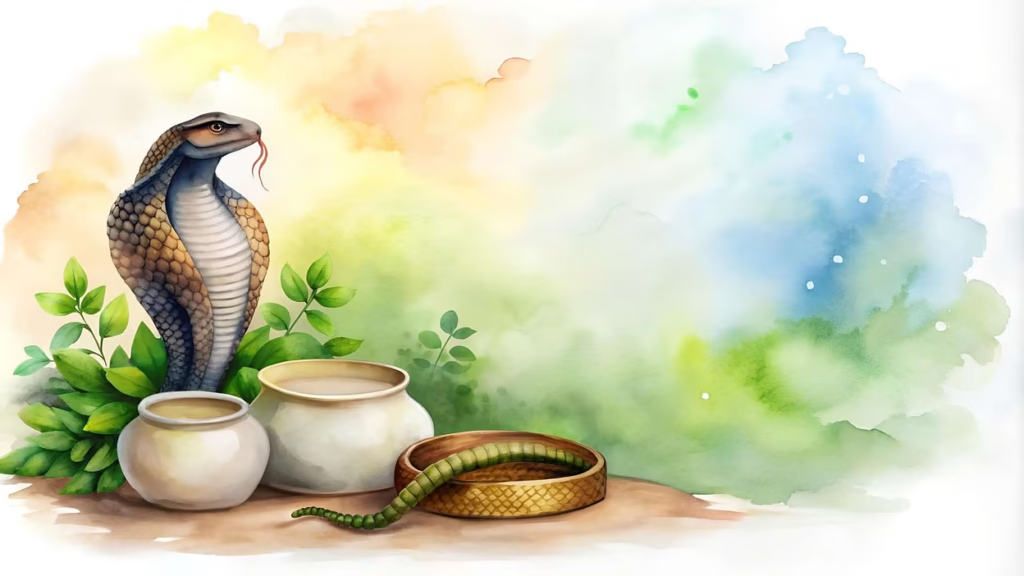
Nag Panchami 2025 Date:
Tuesday, July 29, 2025
Mythological Significance:
Nag Panchami is celebrated on the fifth day (Panchami) of the bright fortnight of Shravan month. According to Hindu scriptures, serpents (Nagas) are considered divine and powerful protectors of treasures, dharma, and cosmic energies.
In the Mahabharata, it is believed that Astika Muni saved the serpent race from annihilation on this day, and hence Nag Panchami is observed in his honor. Another legend connects it to Lord Shiva, who wears the snake Vasuki around his neck, symbolizing control over desires and fear.
Rituals and Celebrations:
Clay or metal idols or images of Nag Devta are placed at temples or homes.
Milk, honey, turmeric, and flowers are offered to snake holes and anthills.
Devotees fast and chant mantras like:
“Om Kurukulye Hum Phat Swaha”
“Om Namo Bhagwate Vasuki Nagaaya”In some places, live snakes are worshipped (by trained priests) with great reverence.
Women pray for family protection, fertility, and removal of ancestral curses.
Spiritual Significance:
Snakes in Hinduism symbolize kundalini energy – the dormant power at the base of the spine. Worshiping Nagas awakens spiritual energy and removes doshas (defects) related to Rahu-Ketu and Naga Dosha in astrology.
Hariyali Teej: Celebration of Divine Union and Feminine Energy
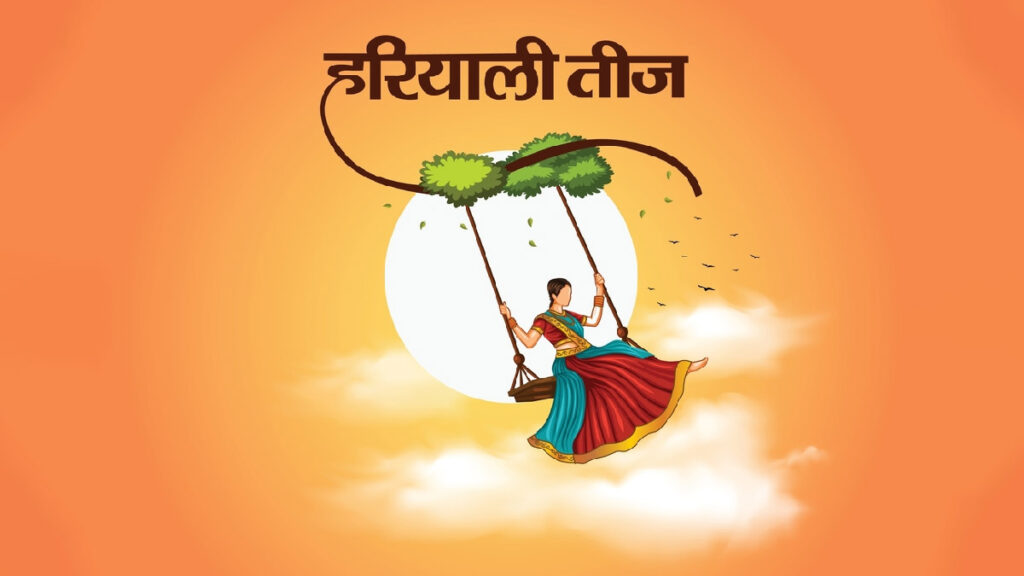
Hariyali Teej 2025 Date:
Sunday, July 27, 2025
Mythological Significance:
Hariyali Teej, also known as Shravan Teej, celebrates the divine union of Lord Shiva and Goddess Parvati. It marks the day when Parvati, after 108 lifetimes of intense penance, was finally accepted by Shiva as his consort.
This festival symbolizes love, dedication, sacrifice, and the power of feminine devotion. It is primarily celebrated by married and unmarried women across North India, especially in Rajasthan, Uttar Pradesh, Bihar, and Madhya Pradesh.
Cultural Practices:
Women dress in green clothes, wear bangles and mehndi (henna), signifying fertility, prosperity, and harmony.
Swings (jhoolas) are hung from trees, and women enjoy folk songs and dance.
Temples organize processions of Goddess Parvati, especially in Rajasthan.
Fasting (Nirjala) is observed by married women for the well-being and longevity of their husbands, while unmarried girls pray for a good life partner.
Traditional sweets like ghewar, malpua, and kheer are prepared.
Ritual Vidhi:
Wake up early, bathe, and wear green attire.
Worship Lord Shiva and Goddess Parvati with flowers, incense, turmeric, kumkum, and sweets.
Read or listen to the Teej Vrat Katha.
Break the fast only after offering prayers in the evening or next morning.
Symbolic Meaning:
Greenery (Hariyali) represents nature’s rejuvenation during monsoon.
It promotes feminine empowerment, marital bliss, and selfless love.
A celebration of the Shakti-Tattva, it reminds devotees that perseverance and purity of heart can attain divine union.
Raksha Bandhan: Festival of Sibling Bond and Protection
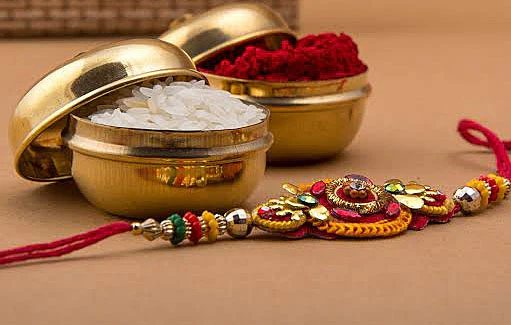
Raksha Bandhan 2025 Date:
Saturday, August 9, 2025
Origin and History:
The word Raksha Bandhan translates to “Bond of Protection.” It is celebrated on the full moon day (Purnima) of Shravan month. Rooted in history and mythology, this festival is a beautiful reminder of the sacred relationship between brothers and sisters.
According to ancient texts:
Draupadi tied a piece of her sari as rakhi to Krishna when he injured his finger, and in return, He protected her during her time of need.
King Bali and Goddess Lakshmi: Lakshmi tied rakhi to demon king Bali, who then allowed Vishnu (her husband) to return to Vaikuntha.
Modern Celebrations:
Sisters tie a rakhi (decorated thread) on their brothers’ wrists, perform aarti, and apply tilak.
Brothers give gifts and promise to protect their sisters from harm and support them throughout life.
Families come together and share sweets, joy, and memories.
Ritual Guide:
Clean the puja space and light a diya.
Sisters perform aarti, apply kumkum, and tie rakhi with love.
Offer sweets, coconut, or dry fruits.
Recite a traditional Raksha Bandhan mantra:
“Yena baddho Bali Raja daanavendro mahaabalah
tena tvaam anubadhnaami rakshe maa chala maa chala”
Emotional and Spiritual Value:
Raksha Bandhan signifies:
Trust and bonding in familial relationships.
Protection and duty (brother’s dharma).
Celebration of unity, forgiveness, and affection.
Even today, Raksha Bandhan continues to evolve, with sisters tying rakhi to sisters, soldiers, and even nature—expanding the idea of universal brotherhood and love.
Why These Festivals Matter During Sawan?
They Are Spiritually Uplifting:
Each festival nurtures a different aspect of human emotion and devotion — fear, love, gratitude, bonding, surrender, and self-discipline.
Seasonal Harmony:
These festivals occur during the monsoon, a time when nature, health, and the mind require realignment. Fasts and rituals during this time cleanse both body and soul.
Connection with Divinity:
The symbolic representations — snakes, greenery, threads — all tie back to cosmic energy, divine protection, and ancestral respect.
How to Prepare for Sawan Festivals?
Clean your home and spiritual spaces.
Stock up on puja essentials like turmeric, flowers, rakhis, clay idols, sweets.
Educate children about the meaning behind each ritual.
Support artisans by buying eco-friendly rakhis, clay idols, and local sweets.
Practice sattvic living during Sawan — avoid alcohol, non-veg, and harsh speech.
Final Thoughts: Celebrate Sawan with Awareness & Devotion
Sawan is more than just a religious month — it is a celebration of culture, inner purification, and spiritual awakening. Nag Panchami, Hariyali Teej, and Raksha Bandhan are not just rituals but deep symbolic representations of ancient truths that still hold relevance in today’s modern, fast-paced life.
These festivals connect us with:
Our roots (ancestral traditions),
Our relationships (love and bonding),
Our higher self (devotion and discipline).
As you celebrate Sawan 2025, take time to understand the essence, involve your family, and spread the values of harmony, protection, and love.
Wishing you a blissful and spiritually rich Sawan!
Related posts:
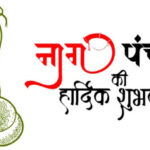 Nag Panchami 2023 Puja: Date-Timing, Nag Panchami Wishes, Quotes, Images
Nag Panchami 2023 Puja: Date-Timing, Nag Panchami Wishes, Quotes, Images
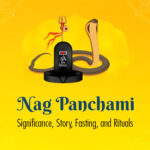 Nag Panchami 2023: Date, Puja Time, Rituals And Significance
Nag Panchami 2023: Date, Puja Time, Rituals And Significance
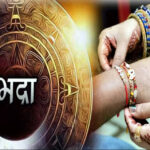 Bhadra’s Unique Influence on Raksha Bandhan 2023
Bhadra’s Unique Influence on Raksha Bandhan 2023
 When is Raksha Bandhan 30 Aug or 31 Aug 2023? Remove your confusion.
When is Raksha Bandhan 30 Aug or 31 Aug 2023? Remove your confusion.
 Celebrating Hariyali Teej 2023: The Festival of Greenery, Joy, and Togetherness
Celebrating Hariyali Teej 2023: The Festival of Greenery, Joy, and Togetherness
 Hariyali Teej 2025: Date, Significance, Rituals, and Celebrations
Hariyali Teej 2025: Date, Significance, Rituals, and Celebrations
